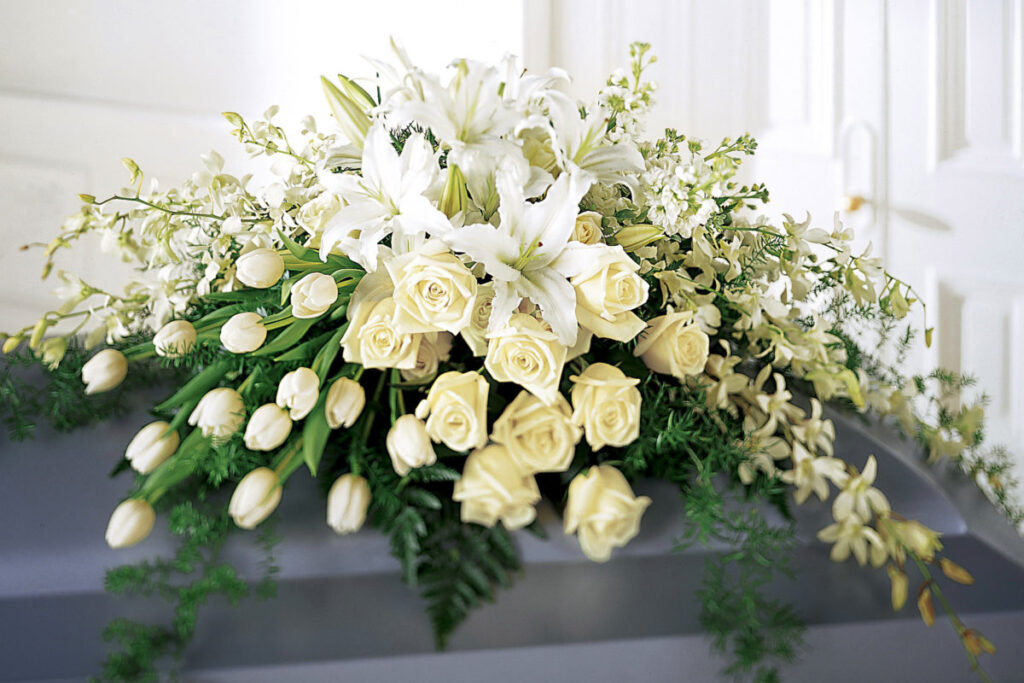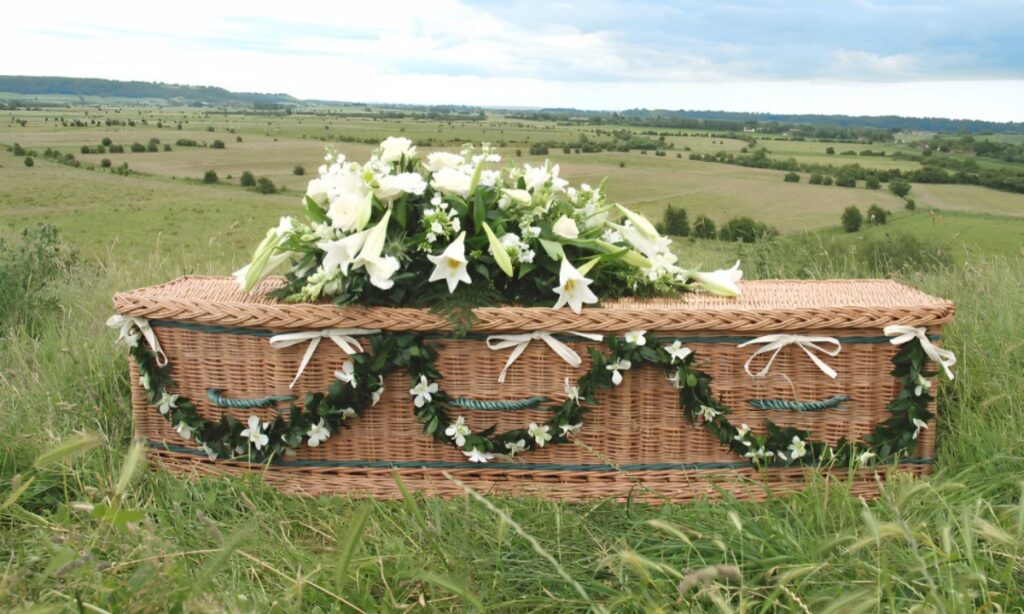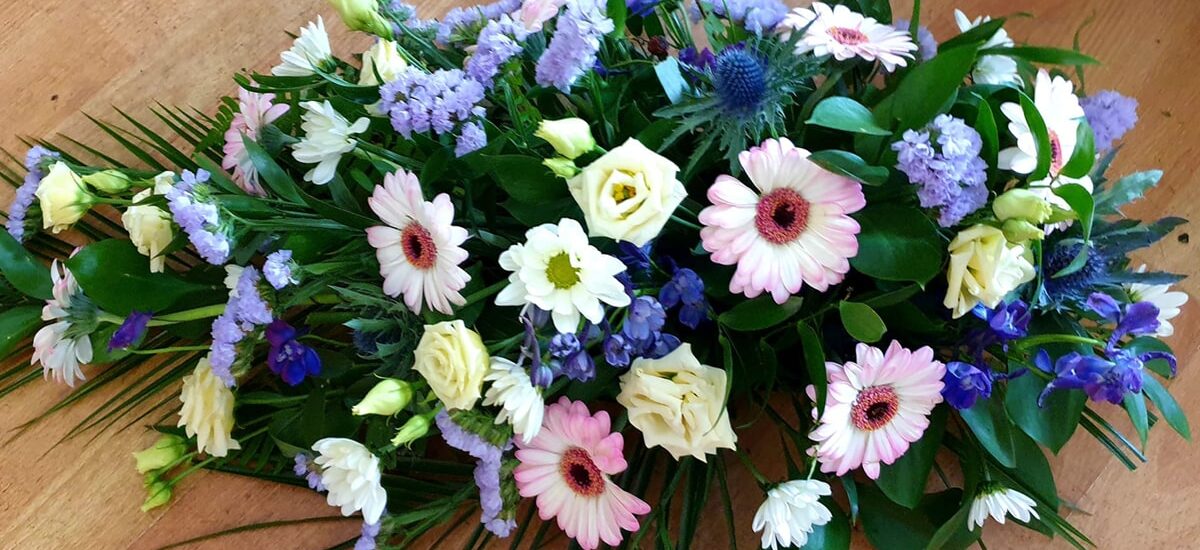Honoring a loved one’s memory through flowers is a beautiful, traditional way to convey sentiments of love, respect, and peace. Funeral flowers, often selected with thoughtful care, offer a way for friends and family to express their condolences and bring comfort to those mourning. In this guide, we’ll explore the types of funeral flowers, their symbolism, and the etiquette behind choosing the most meaningful arrangements.
1. Introduction to Funeral Flowers
Flowers have long held symbolic importance in times of loss, and funeral flowers remain an integral part of memorial services worldwide. Each arrangement speaks volumes, bringing comfort and paying homage to the life of the deceased. Understanding the different types and meanings behind these flowers can make the process of choosing funeral flowers meaningful and impactful.
2. The Importance of Symbolism in Funeral Flowers
When selecting flowers for a funeral, symbolism becomes an essential consideration. Different flowers and colors carry varied meanings, allowing mourners to select funeral flowers that reflect their personal sentiments or respect the cultural beliefs of the deceased and their family. Adding an extra layer of thought to the arrangements, flowers have become more than just decor at memorial services—they’re a silent expression of love and remembrance.
For example, lilies often symbolize the restored innocence of the soul, making them a popular choice. Likewise, roses convey love and respect, with colors such as red representing deep love and white symbolizing reverence. To personalize these symbols, individuals might include funeral flowers that resonated with the deceased or that align with the family’s traditions.
3. Types of Flowers and Their Meanings
a. Lilies
Lilies are one of the most traditional choices for funerals, symbolizing innocence, purity, and the peaceful return to a state of rest. White lilies, in particular, are highly regarded in funeral flower arrangements for their elegance and gentle fragrance.
b. Roses
Roses add a beautiful touch to funeral arrangements, with each color carrying a unique meaning. Red roses are emblematic of love and sorrow, while white roses signify reverence and purity. Yellow roses are sometimes included to represent close friendships with the deceased.
c. Orchids
Known for their elegance and beauty, orchids symbolize eternal love. Pink and white orchids are commonly used in funeral arrangements, symbolizing the everlasting bond of love and remembrance.
d. Chrysanthemums
Chrysanthemums, or “mums,” are commonly used in funerals, particularly in European and Asian cultures. White chrysanthemums represent grief and sorrow, making them a fitting choice for expressing condolence.
e. Carnations
Carnations, due to their durability, are frequently used in funeral wreaths and sprays. White carnations symbolize innocence, while pink represents remembrance.

4. Funeral Flower Arrangements and Their Significance
a. Wreaths
Wreaths are circular, symbolizing eternal life and the unending love for the deceased. This arrangement is often placed at gravesides or on display during services.
b. Sprays
Sprays are versatile and can be designed to be placed on caskets or as standing arrangements. These are often selected by close family members.
c. Bouquets
Simple yet meaningful, bouquets can be placed near the service area or given to family members. Bouquets may include a mix of flowers and are chosen for their elegant simplicity.
d. Crosses
Cross-shaped arrangements are common in Christian ceremonies and signify faith and the promise of eternal life.
5. Choosing the Right Flowers Based on Relationship
The relationship between the sender and the deceased often influences the choice of funeral flowers:
- Immediate Family: Immediate family members might choose larger, personalized arrangements, such as casket sprays or standing crosses.
- Friends: Close friends often select bouquets or smaller wreaths that convey heartfelt sympathy.
- Colleagues: For colleagues or acquaintances, an elegant bouquet or arrangement can show respect without being too personal.
6. Funeral Flower Etiquette
Understanding funeral flower etiquette ensures that your gesture is appropriate and respectful. Here are some key guidelines:
- Timing Matters: Aim to send flowers in advance or arrange delivery to the funeral home to avoid any disruptions.
- Respect Cultural Preferences: Some cultures have specific preferences regarding funeral flowers, so be mindful of any customs related to the deceased.
- Sympathy Cards: A handwritten note can make your arrangement feel personal. Include a short message expressing your condolences to add a thoughtful touch.

7. Unique Ways to Personalize Funeral Flowers
Adding a personal touch to a funeral flower arrangement can make it even more meaningful. Here are a few ideas:
a. Incorporate the Deceased’s Favorite Flowers
If you know the favorite flower or color of the person who passed, include these in the arrangement to honor them personally.
b. Include Memorabilia or Symbols
Small tokens, like a ribbon with a meaningful message or a charm, can be added to the arrangement to reflect the deceased’s personality or achievements.
c. Choose Seasonal or Regional Blooms
Using flowers that are in season or native to the area is a beautiful way to honor someone while reflecting the natural beauty of their surroundings.
8. Final Thoughts
Choosing the right funeral flowers is a meaningful gesture that speaks to your respect and love for the departed. From lilies and roses to chrysanthemums and orchids, the range of options allows for a personalized tribute that captures the spirit of the one who has passed. Consider the relationship, cultural traditions, and personal touches when selecting your arrangement to ensure it aligns with both your emotions and the sentiments of the family.
In times of loss, a simple yet thoughtful arrangement can offer comfort and peace to those grieving. Selecting appropriate funeral flowers, whether for close family or a friend, is a delicate process that communicates your support during a difficult time.
In Conclusion
By choosing a well-thought-out flower arrangement, you are not only paying tribute but also creating a space for remembrance and healing. When it comes to funeral flowers, every detail—from flower types to arrangement style—adds meaning and comfort, making it a lasting symbol of love and respect.
Related: 10 Unique Wedding Flowers Ideas to Make Your Big Day Unforgettable






